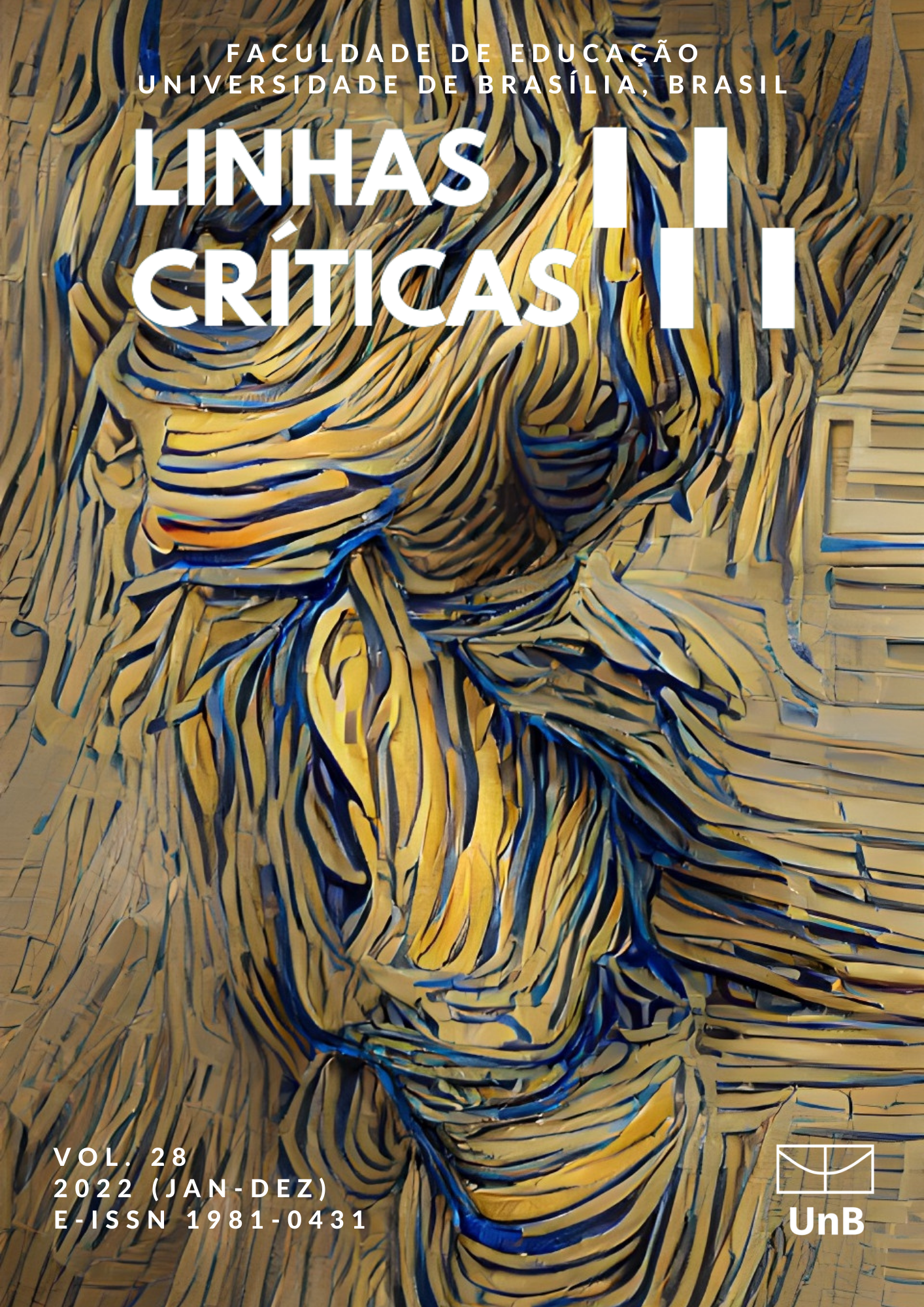Federal Institutes: desire to be university or subjected to the university?
DOI:
https://doi.org/10.26512/lc28202240626Keywords:
Federal Institutes, Identity, PolicyAbstract
The objective is to characterize the São Carlos campus of the Federal Institute of Education, Science and Technology of São Paulo (IFSP) and its relations with the Federal University of São Carlos (UFSCar). Methodologically, we crossed the analysis of documents with that of interviews carried out with twelve servers. We verified a political-partisan link between the institutions and the municipal and federal governments. We point to a late attendance to the normative beacons and damage to the identity of the IFSP. Such aspects obliterate the perspective of a network performance and reverberate in conflicting expectations of the servers.
Downloads
References
Bardin, L. (2016). Análise de Conteúdo. Edições 70.
Banco Mundial (BM). (2017). Um Ajuste Justo: Análise da eficiência e equidade do gasto público no Brasil. Grupo Banco Mundial. http://documents.worldbank.org/curated/en/884871511196609355/pdf/121480-revised-portuguese-Brazil-Public-Expenditure-Review-Overview-Portuguese-Final-revised.pdf
Brasil. (2008). Lei n.º 11.892, de 29 de dezembro de 2008 (Institui a Rede Federal de Educação Profissional, Científica e Tecnológica, cria os Institutos Federais de Educação, Ciência e Tecnologia, e dá outras providências). Presidência da República. Casa Civil. http://www.planalto.gov.br/ccivil_03/_ato2007-2010/2008/lei/l11892.htm
Brasil. (2012). Relatório de Auditoria. Tribunal de Contas da União. https://fonai-mec.com.br/uploads/documentos/arq1366982370.pdf
Conselho Nacional das Instituições da Rede Federal de Educação Profissional, Científica e Tecnológica (CONIF). (2017). Nota de Repúdio. Conselho Nacional das Instituições da Rede Federal de Educação Profissional, Científica e Tecnológica (CONIF). https://portal.conif.org.br/br/component/content/article/84-ultimas-noticias/1763-nota-de-repudio?Itemid=609
Instituto Federal de Educação, Ciência e Tecnologia de São Paulo (IFSP). (2015). Projeto Político Pedagógico (Documento em construção). http://antigo.scl.ifsp.edu.br/portal/arquivos/2016.04.13_PPP.pdf
Instituto Federal de Educação, Ciência e Tecnologia de São Paulo (IFSP). (2017). Resolução n.º 162/2017, de 28 de novembro de 2017. Conselho Superior do Instituto Federal de Educação, Ciência e Tecnologia de São Paulo. https://www.ifsp.edu.br/images/reitoria/Resolucoes/resolucoes2017/Resoluo_162_2017_Aprova-a-reviso-do-PDI-2014_2018-do-Instituto-Federal-de-So-Paulo.pdf
Loureiro, T. (2020). Trabalho, Subjetividade e Identidade dos Institutos Federais de Educação, Ciência e Tecnologia: análise de um caso sui generis. [Tese de doutorado, Universidade Federal de São Carlos]. Repositório Institucional da UFSCar. https://repositorio.ufscar.br/handle/ufscar/13315
Ministério da Educação (MEC). (2007). Portaria n.º 1008 de 29 de outubro de 2007 (Autoriza o funcionamento do CEFET São Carlos). https://drive.ifsp.edu.br/s/Rufx1wvetr6DqhY
Ministério da Educação (MEC). (2018). Ampliação da Rede Federal. Secretaria de Educação Profissional e Tecnológica. http://portal.mec.gov.br/setec-programas-e-acoes/expansao-da-rede-federal
Moraes, G. H. (2016). Identidade de escola técnica vs. vontade de universidade: a formação da identidade dos Institutos Federais. [Tese de doutorado, Universidade de Brasília]. Repositório Institucional da UnB. https://repositorio.unb.br/handle/10482/21409
Moraes, G. H., & Kipnis, B. (2017). Identidade de Escola Técnica vs Vontade de Universidade nos Institutos Federais: Uma abordagem histórica. Linhas Críticas 23(52), 693-716. https://doi.org/10.26512/lc.v23i52.22884
Pacheco, E. M., Pereira, L. A. C., & Sobrinho, M. D. (2010). Institutos Federais de Educação, Ciência e Tecnologia: limites e possibilidades. Linhas Críticas, 16(30), 71-88. https://doi.org/10.26512/lc.v16i30.3568
Plataforma Nilo Peçanha. (2019). Ano base 2018. Plataforma Nilo Peçanha. http://plataformanilopecanha.mec.gov.br/2019.html
Yin, R. K. (2015). Estudo de caso: planejamento e métodos (5ª ed.). Bookman.
Published
How to Cite
Issue
Section
License
Copyright (c) 2022 Thiago Loureiro, Eduardo Pinto e Silva

This work is licensed under a Creative Commons Attribution 4.0 International License.
Authors who publish in this journal agree to the following terms:
-Authors maintains the copyright and grants the journal the right of first publication, the work being simultaneously licensed under the Creative Commons Attribution License which allows the sharing of the work with recognition of the authorship of the work and initial publication in this journal.
- Authors are authorized to enter into additional contracts separately, for non-exclusive distribution of the version of the work published in this journal (eg publish in institutional repository or as a book chapter), with acknowledgment of authorship and initial publication in this journal.
-Authorers are allowed and encouraged to publish and distribute their work online (eg in institutional repositories or on their personal page) at any point before or during the editorial process, as this can generate productive changes as well as increase the impact and the citation of published work (See The Effect of Free Access).



